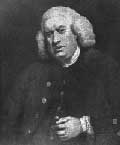All literature classes--particularly the anthology-based survey courses that are the bread and butter of English departments--take part, more or less self-consciously, in the canon debates of the late twentieth century. Indeed, these debates are one of the primary curricular campaigns of the cultural wars, and certainly one of the most publicized of such skirmishes. Whether we're involved in canon-building or canon-busting, whether we think of canons as collections of the "best that's been thought and said" or as constructions of a usable past that we carry with us to help define our present, we all agree that transmitting, transforming, and just plain talking about canons are worthwhile activities for us as scholars and teachers.
Why do we care so much about canons? Why do we spend so much time on literary histories, genealogies, and traditions? What is at stake in these discussions and debates? Our national or cultural identities? Our imagined communities? Our collective and subjective sense of self? If we agree that this is an important conversation, then we must agree that it is crucial to get our students to invest and join in it, not merely as onlookers, but as engaged and active participants. Why not ask them to build canons of their own (perhaps even ones based upon personal standards and taste), or to interrogate and revise the ones that have been handed down to them by their teachers? An assignment based on such a project might encourage students to devise their own way of organizing the course syllabus (whether chronologically, thematically, or generically); it might ask them to situate literary texts along a time-line that also includes relevant historical events; it might invite them to put together (even hypertextually "publish") their own anthology of significant texts or extracts which could include, as do the Norton Anthologies, explanatory introductory notes putting the texts in dialogue with both historical contexts and other works of literature. All this is by way of emphasizing the ways in which learning is an active process, one rooted in asking questions, exploring new terrain, and expanding fields of study and inquiry, rather than in collecting answers, discovering truths, creating (even forcing?) closure, or narrowing lines of vision or thought.
Related terms:
 Back to the Launch Page
Back to the Launch Page
 Back to the list of keywords
Back to the list of keywords